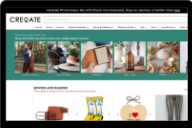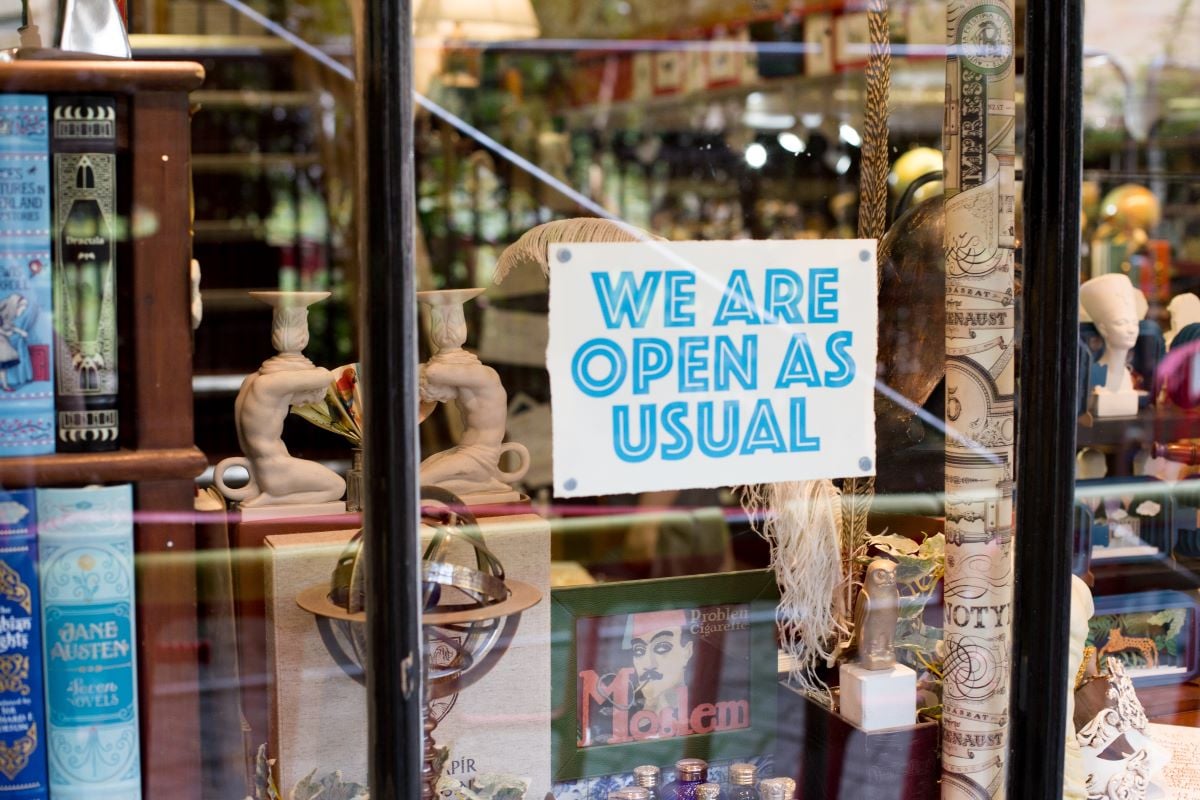
You have a dream to run a retail business. By now, you’ve probably run some rough numbers and realised there’s a pretty chunky upfront cost to opening a shop and bringing it to the point of profitability.
You may be in the position where a retail store is the next step in an existing business, and is one you can afford to take without external help. Or you may be able (and willing) to fund your new venture from your own savings. Otherwise, it’s going to be a case of bringing in extra funds, either via loans or investments. In this post, we’ll explore some of your options when it comes to financing your retail business.
How to finance a retail business:
- Self-funding
- Government business loans
- Loans from commercial lenders
- Crowdfunding
- Bringing in investors
🚨Quick note: This guide is intended to offer a side-by-side look at some of the ways you can finance your retail business, but it’s not a substitute for professional financial or legal advice, which you should always seek out if unsure. The information we’ve included is, to the best of our knowledge, correct at the time of writing, but always double check current rates, figures, and terms.
1. Self-funding your retail business
Whether it’s through preference or lack of other options, saving up to self-finance your retail business may be the best option available.
Jayne owns and runs Dragonfly, a gift shop in Bromsgrove, UK, struggled to get external funding — so she took matters into her own hands:
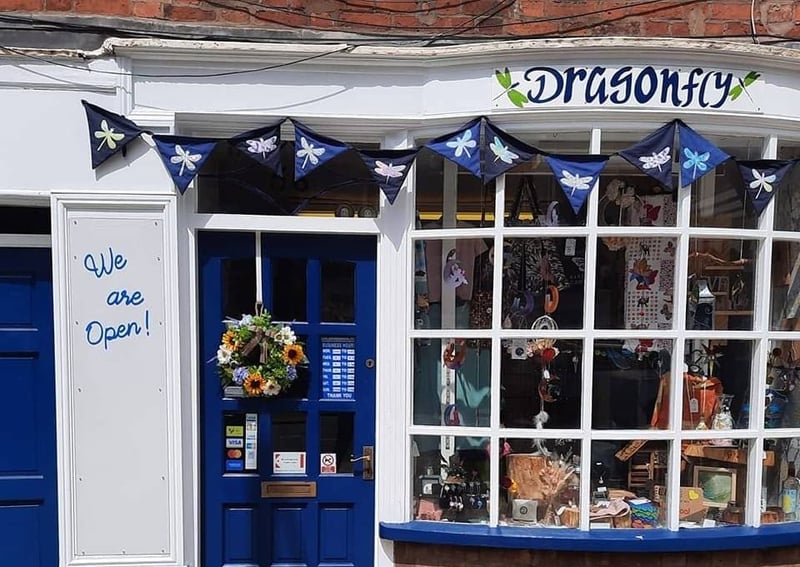
Jayne was able to self-fund her store, the Dragonfly in Bromsgrove, UK
“I tried to get funding but was blocked at every turn. So I rolled up my sleeves and got creative. I built or adapted what I needed.”
She saved up a few months’ rent and was able to rent the space out to others, which helped her cover what was needed in those all-important few months.
How much should you have ready to go?
It’s so hard to say with conviction how much you should save before starting your own retail business (if you want to self fund the whole thing).
You’ll need money to cover your start up costs, so the cost of getting your shop to open day. If you read our guide to opening a shop, you’ll see this can vary enormously — but is likely to be several thousands of pounds.
Beyond this, refer back to your business plan. Taking start up costs out of the equation, consider your ‘worst’ case scenario. With this outcome, at what point would you become profitable? And how much would you need to get your shop to that point? And how much would you need personally to cover you until then?
Add this to your start up costs, and aim to have this saved before opening.
💡 Good to know: Cash flow is hard to smooth out in a retail business. Not only do you need to pay your big fixed costs (like rent) in advance, you’ll also need to fork out for stock long before you’ve had a chance to sell it…
👋 CREOATE can help here. Over 6,500 independent brands sell wholesale through CREOATE, and we offer 60-day payment terms. This means you can get ahead of your cash flow, and sell stock before you have to pay for it. You also have 60 days to return anything that doesn’t sell.
2. Government business loans
The UK government has two schemes available to help new businesses get off the ground, or existing ones expand their operations.
For brand new businesses: Start Up Loan
👉 At a glance:
- Available to new UK businesses only
- Borrow £500 - £25,000
- Government-backed finance
- Repayment period of 1-5 years
- 6% interest
- Support available for writing your business plan
- Up to 12 months ‘mentorship’ included
For expanding businesses: Recovery loan
👉 At a glance:
- Businesses already operating and looking to expand
- Borrow £25,001- £2 million
- Provided by approved lenders, but the UK Government guarantees 70% of it
- Repayment period of 3-6 years (depending on type of finance)
- Interest depends on provider and plan
The name ‘Recovery’ is a confusing leftover from pandemic support. Recovery loans are actually only available to businesses that are ‘viable’ and ‘not in difficulty’.
An entrepreneurial economy with lots of small business owners is something most countries strive for, as it makes the most economic sense.
Keep this in mind when applying for business loans. Rather than being some kind of intimidating Dragon’s Den scenario, everyone’s on the same team. Nobody’s trying to trip you up, but they do need to run due diligence to check they’re lending responsibly, and are likely to get their money back. In short, ‘loan’ doesn’t need to be a scary word.
3. Other commercial lenders
If the government options don’t work for you, you also have the option of seeking a business loan from a bank.
If you already have a business, your existing business bank may be the best bet here, as you’ll have some kind of positive track record to draw upon. But that doesn’t mean you can’t try elsewhere if you see a better offer.
As with any financial agreement, consider these loans carefully. You need to understand:
- Whether applying for this loan impacts your credit score
- How much you can realistically commit to paying back each month
- How much you’ll end up paying in interest over the course of the loan repayment (and if this makes the loan worth taking out in the first place)
- Whether interest is fixed (so you can predict exactly how much you’ll be paying back) or variable (so it’s changeable according to market conditions)
- Whether you’ll receive any mentoring support alongside your loan
- What will happen if your business is forced to close
4. Crowdfunding your retail business
Is your retail store filling a need in your community? Have you already built up a strong community on social media?
If you answered yes to the above, crowdfunding your retail business is an option worth exploring.
Crowdfunding is a way to get multiple people to ‘pledge’ money for your business. Unlike a regular loan, you don’t have to return this money at a later date. Instead, your backers will pledge money against a reward, which you’ll need to deliver on if you do hit your target and get funded. Examples could be: a free brownie, a free crochet class, £50 towards their first instore purchase, and more.
🍞 When crowdfunding works: Bread By Bike
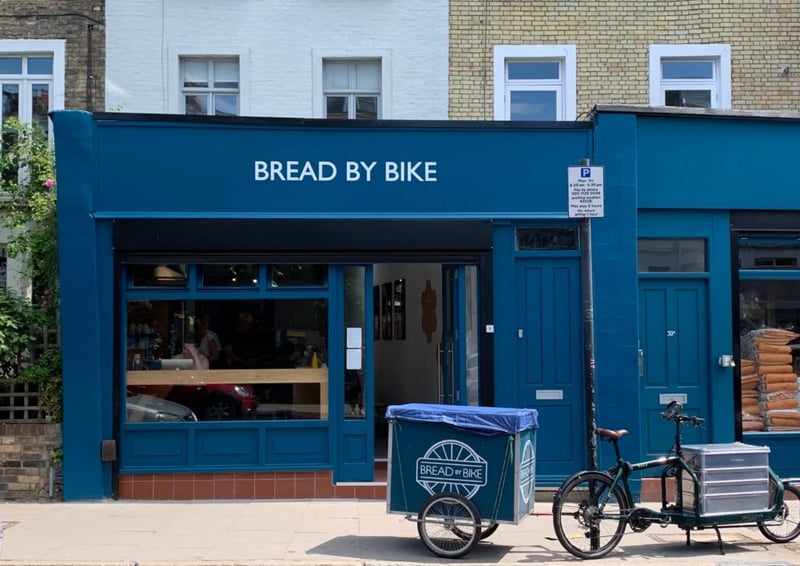
Image source: Kentishtowner
Bread By Bike is a small bakery in North London. In 2020, they decided to raise money to open the Bread By Bike Café next door to the original bakery. After setting an original target of £25,000, they later updated this to a stretch target of £30,000, and smashed this goal, too.
The café opened around a year later, and three years on from the original campaign launch, it’s going strong.
Why did this campaign do so well?
- Locals already loved the bakery, and there weren’t any other good cafes in the immediate area; it’s a good idea, and a good fit
- Tireless campaigning from the business to spread the word to their existing customers, and beyond
- Great pledge rewards! Bread subscriptions, brunch vouchers… the backers weren’t just throwing money into something they wanted to happen; they were paying in advance for something delicious. And in turn, Bread By Bike was filling tables before it even opened. Genius!
When it works, crowdfunding is a great way to get local people invested in what you’re bringing to the street. But you need to be prepared to campaign hard to make it come to life.
Different types of crowdfunding:
Crowdfunding has come a long way in recent years, and you now have plenty of established crowdfunding websites to consider for your retail business. It’s worth noting at this point that there are a few different types of crowdfunding websites:
- Peer-to-peer lending: When you accept money from people on a peer-to-peer lending site, they typically then own a small part of your business. It’s a way to get investment in your business from multiple small investors.
- Rewards-based crowdfunding: When you accept money from people on a rewards-based crowdfunding site, you ‘pledge’ a gift depending on how much they give you, which you then need to deliver on if you hit your target and go ahead with your project.
- Donation-based crowdfunding: Where people pledge money for your project, and expect nothing back in return. Best for community and not-for-profit initiatives.
Where should you launch your crowdfunding campaign?
1. Kickstarter
🚀 Type: Rewards-based crowdfunding
🎯 Best for: Creative projects looking for multiple backers
Kickstarter is probably the most popular and well-known crowdfunding website. It does have a skew towards more creative projects, but doesn’t exclude those that aren’t — Bread By Bike’s successful campaign is testament to that.
Note that on Kickstarter, you’ll need to hit your full crowdfunding target in order to access any of the money pledged.
2. Crowdfunder
🚀 Type: Rewards-based
🎯 Best for: Projects with a charitable spin & campaigns
Crowdfunder is built to help fund projects ‘of all shapes and sizes’, but is designed to be particularly helpful to charities, and those adding value to the local community (think: lower fees, more support).
You’ll get to keep any money pledged on Crowdfunder, even if you don’t hit your full target. But be sure to specify how you will use the money if this is the case.
3. Crowdcube
🚀 Type: Peer-to-peer lending
🎯 Best for: Retail businesses with multiple stores, tech, startups
Crowdcube is set up to help individuals and investors who want to ‘invest in Europe’s best startups’. It’s not targeted at independent small businesses, but that doesn’t mean you can’t use the platform; you just might find you’re not the right match for its audience unless there’s a more scalable component of your business, like a subscription service.
5. Seeking investment for your retail business
Crowdcube, and similar peer-to-peer lending platforms, let you sell off part of your business to multiple small investors who won’t be involved in the day-to-day running of their business.
But for some people, a smaller number of investors is a better fit, whether private or within their own network.
Taking capital from friends and family
You may find you have a friend or family member who’s willing to invest in your business. This can work really well, and means you get to support (and potentially work closely with) people you love.
But it can also end badly; make sure both of you have clear boundaries and expectations from the start on all aspects of the investment to help it run smoothly.
Private investors
If you want to look for investment outside of your own circle, you have two options:
- Angel investors — high net worth individuals with money to invest
- Venture capitalists — who invest money on behalf of other people and businesses
Again, the scope here can vary hugely in terms of how involved these investors want to be in the running of your business, so make sure you’re clear on what they’re expecting from the start.
The right investor can complement your own skill set, and strengthen your business as a whole; but having someone else to answer to isn’t for everyone.
How to find private investors
- Certain crowdfunding platforms (which we covered above)
- Angel networks
- Asking your own network
- Reaching out to businesses that are similar to yours and asking for recommendations
💡 Consider ‘soft launching’ your store first
Launching a retail store isn’t cheap, and it isn’t for the faint of heart. Which is why more and more retail businesses choose to road test their idea before committing to a full store, either via a brick-and-mortar pop up space, a craft market, or an ecommerce site.
A successful pop up stint will:
- Strengthen any applications for loans or investment
- Bring you peace of mind that your idea’s a good one
- Help you spot any tweaks to be made before you open the real deal
For Harriet Rouse, owner of independent retail store Harriet & Rose (formerly an ecommerce-only business), it was a successful pop up that helped confirm a brick-and-mortar store would work for her business:
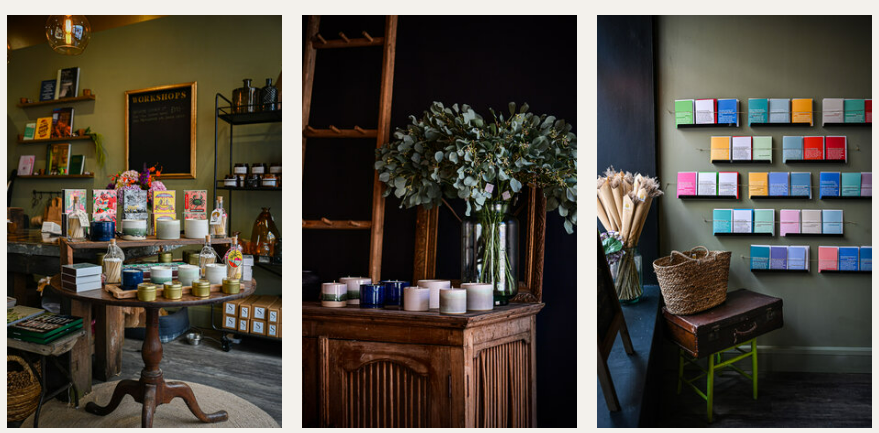 Harriet & Rose opened on the island of Jersey after a successful pop up stint
Harriet & Rose opened on the island of Jersey after a successful pop up stint
“In the run up to Christmas 2020 I organised a ‘Small Business Pop up’ and knew that when I could talk to my customers about what they were buying, I sold more… and so the decision [to find a permanent retail space] sort of made itself”.
There are a range of pop up space marketplaces where you can book a retail space for as little as £50 a day. Appear Here, We Are Pop Up and Popable are all popular platforms.
Like the spaces themselves, the price varies hugely; from £50 to £3,000+ per day. But it can be a great, low-risk way to get proof of concept before committing to the real thing.
📚 Find out more: How to set up a pop up shop
How to finance your retail business: what next?
By now you should better understand your options for financing your retail business, whether you want to do it alone or get others involved.
Opening a retail store is a big journey, but we’re here to help you through it. Now you’ve , in which case you might find some of the following guides helpful:
🛍️ How to Open a Retail Store: From Idea to Open Day, and Beyond
📋 How to Write a Business Plan
👗 How to Buy Wholesale: Choosing the Right Stock
🦺 Shop Insurance Explained: 8 Types of Retail Insurance


